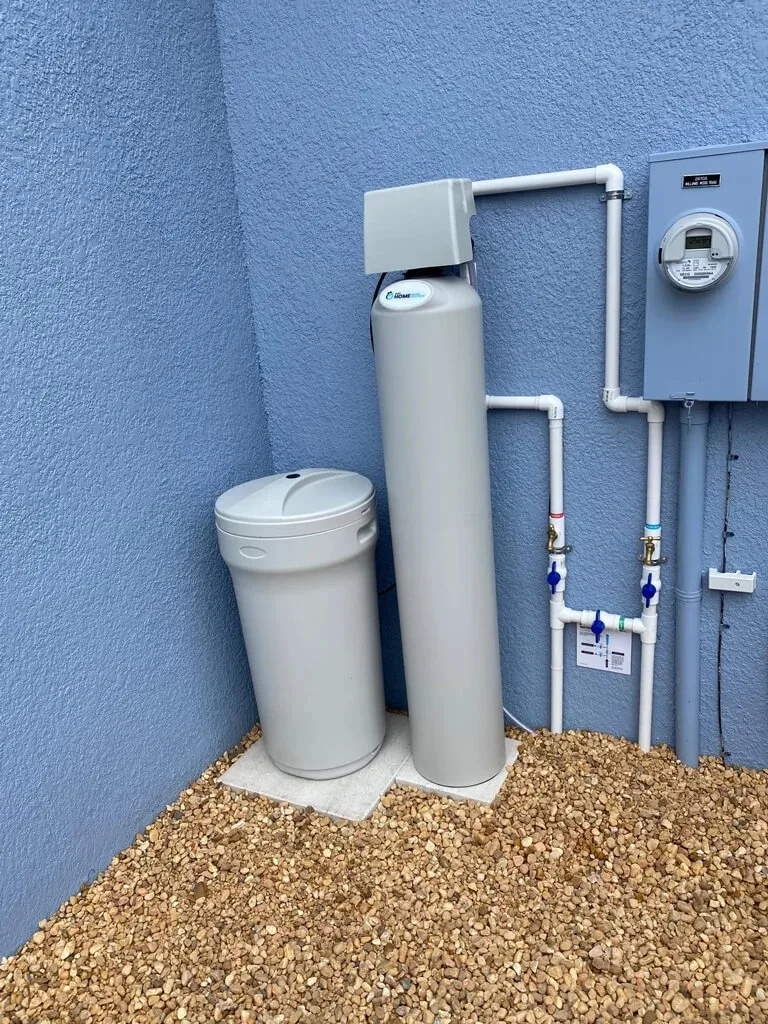Untreated water is water that has undergone very little to no refining at all. Also known as hard water, it contains high concentrations of minerals like magnesium and calcium. These minerals can cause a number of problems, including:
- Scale buildup on plumbing fixtures;
- Reduced efficiency of appliances;
- Dry and/or itchy skin;
- Dingy laundry and dishes; and the like.
A water softener can help to solve the above mentioned problems by removing the minerals from your water. Water softeners work by using resin to exchange the hard water minerals for sodium ions. This process results in soft water, which is water that’s low in mineral content.
How Hard Is Your Water
The hardness of your water will vary depending on where you live. Most Americans with no water treatment units at home will most likely have hard water.
If you aren’t sure whether you have hard water, you can test your water yourself, request a Water Well Test, or contact your local water utility. There are a number of different ways to test your water hardness, including:
- Home Water Tests: These kits are available at most hardware stores. To use a home test kit, simply collect a sample of your water and follow the instructions that came with the kit.
- Professional Water Testing: In addition, you can have your water tested by a professional water testing company. This is a more accurate way to test your water hardness, but it’s also more expensive.
Benefits Of Water Softeners
There are many benefits to at-home water softener installation in Indianapolis or in the city you’re living in. Some of the benefits include:
- Improved water quality: Soft water is more pleasant to use for bathing, showering, and washing dishes. Plus, it can aid in improving the taste and smell of your drinking water.
- Extended Appliance Lifespan: Hard water minerals can build up on your home appliances and reduce their efficiency and lifespan. Luckily, soft water can help to extend the lifespan of your appliances.
- Reduced Cleaning Costs: Soft water leaves less residue on plumbing fixtures and dishes, which can reduce your cleaning time and costs.
- Health Benefits: Some people believe that soft water can have health benefits, such as reducing the risk of eczema and psoriasis.
Picking A Water Softener
There are a number of different types of water softeners available, so it’s important to pick the right one for your home. When choosing a water softener, you should consider the following factors:
- Size: The size of the water softener will depend on the size of your household and the hardness of your water.
- Type: There are two main types of water softeners: salt-based and salt-free. Salt-based water softeners are more effective at removing minerals from water, but they require regular maintenance. On the other hand, salt-free water softeners are less effective, but they’re also easier to maintain.
- Features: Some water softeners come with additional features, such as timers and alarms, that make them more functional.
Water Softener Installation in Indianapolis
If you’re considering installing a water softener in your home, you should contact a qualified plumber. A plumber can help you to choose the right water softener for your needs and install it properly.
Water Softener Installation Process
The water softener installation process typically involves the following steps:
- The plumber will disconnect the main water supply to your home.
- The plumber will install the water softener bypass valve.
- The plumber will connect the water softener to the water supply line and the drain line.
- The plumber will program the water softener and test it to make sure it is working properly.
Water Softener Upkeep
Once your water softener is installed, it’s important to maintain it properly. This will help to ensure that it continues to work effectively and efficiently.
Regularly clean the resin tank and other components of the water softener according to the manufacturer’s instructions. And have the water softener inspected by a qualified plumber at least once a year.
Additional Tips For Homeowners
Here are some additional tips for homeowners who are considering installing a water softener:
- Get multiple quotes from different plumbers before you choose one.
- Be sure to ask the plumber about their experience with installing water softeners.
- Make sure the plumber is licensed and insured.
- Read the warranty carefully before you purchase a water softener.
- Follow the manufacturer’s instructions for maintaining your water softener.
Troubleshooting Common Water Softener Problems
Here are some common water softener problems and how to troubleshoot them:
- If your water softener isn’t producing soft water, check the salt level and make sure it’s adequate. You should also check the resin tank to make sure it is not clogged. If the salt level is adequate and the resin tank isn’t clogged, you may need to regenerate the water softener. To regenerate the water softener, follow the manufacturer’s instructions.
- If your water softener is leaking, check the connections to make sure they’re tight. Further, you should check the resin tank for any cracks or leaks. If the connections are tight and the resin tank isn’t cracked, you may need to replace a gasket or seal.
- If your water softener is making noise, it may be a sign of a problem. Some common causes of noisy water softeners include low water pressure, clogged resin tanks, and others. If you aren’t sure what’s causing your water softener to make noise, it’s best to contact a professional plumber.
In Conclusion
Residential water softeners can provide a number of benefits to homeowners, including improved water quality, extended appliance lifespan, reduced cleaning costs, and potential health benefits. If you live in Indianapolis and have hard water, you should consider installing a water softener in your residence.





